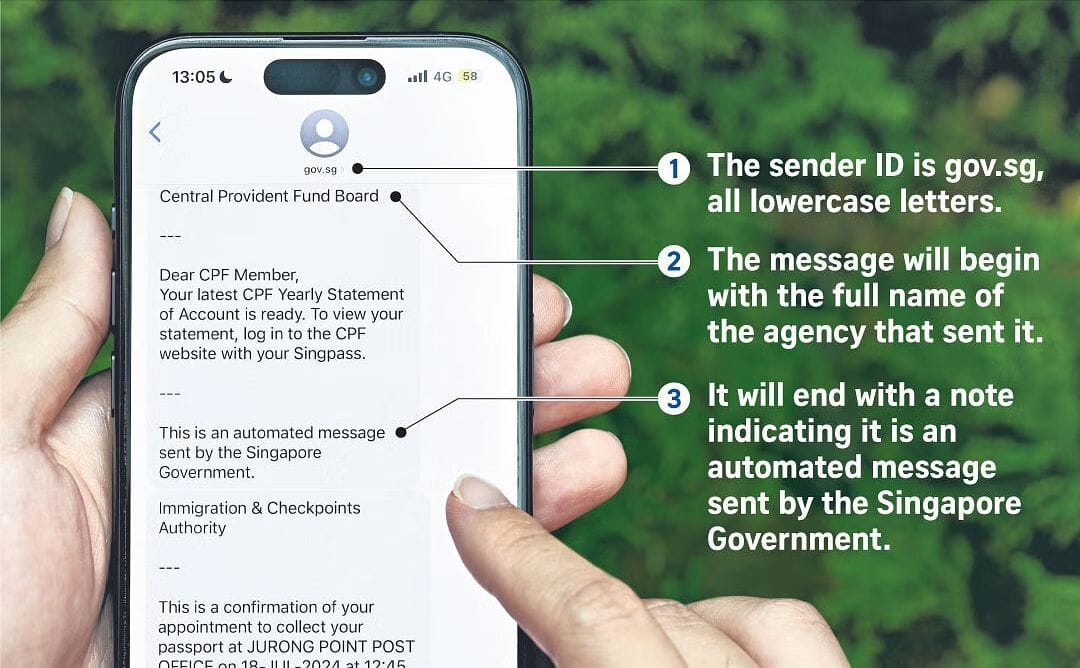Singapore govt agencies to use gov.sg as SMS sender ID
Text messages from Singapore government agencies will show "gov.sg" as the sender ID from July 1st.

Text messages from Singapore government agencies will show "gov.sg" as the sender ID from July 1st.
As part of ongoing efforts to stamp out scams, text messages from Singapore government agencies will be sent from a recognisable sender ID beginning June 18.
One sender ID
All messages will show the new sender ID from July 1st.
- Each msg will begin with the full name of the agency.
- Sender ID to give public confidence, peace of mind.
- Misspellings such as "g0v.5g" are also blocked.
The exceptions are the Defence and Home Affair ministries, which will use different sender IDs.
The state of SMS
Invented in 1992, the venerable SMS arrived around the time of the 2G phone. It was a very different world, both in terms of phone ownership and cybersecurity awareness.
Since them, text messages have surged into multiple billions of messages daily before ebbing somewhat.
Today, SMSs continue to be used for:
- For two-factor security codes.
- Updates sent by banks, businesses.
- Mass communication by governments.
The 'from' field
There are two fundamental issues baked into the SMS system:
- Like email messages, it is possible to put any data into the "From" field of an SMS. This has been exploited at scale by scammers in recent years
- Hackers have also successfully exploited compromised phone networks overseas to briefly hijack phone numbers. Timed correctly, this allows them to divert SMSs containing two-factor security codes.
Lots of backend effort
This latest initiative seeks to further safeguard residents in Singapore against government official impersonation scams.
Despite this being a small step, it involves substantial effort on the backend to build new safeguards at multiple levels (and telcos) to sieve out non-authorised use of the "gov.sg" sender ID.
So that's a step in the right direction. Of course, the onus is on us to stay vigilant.




